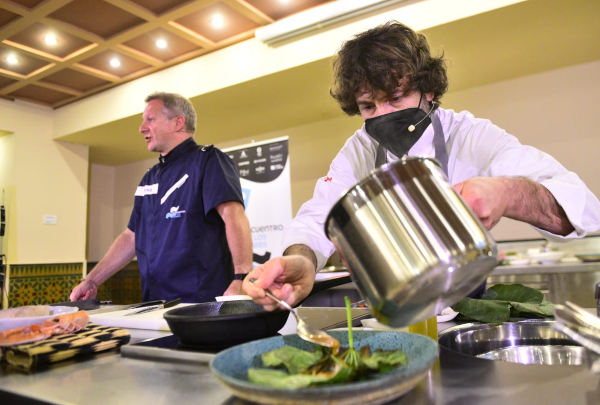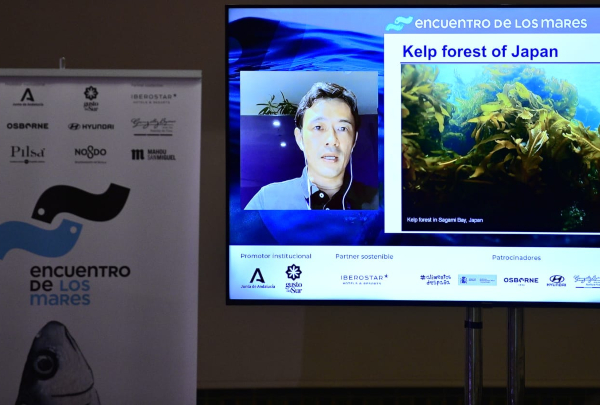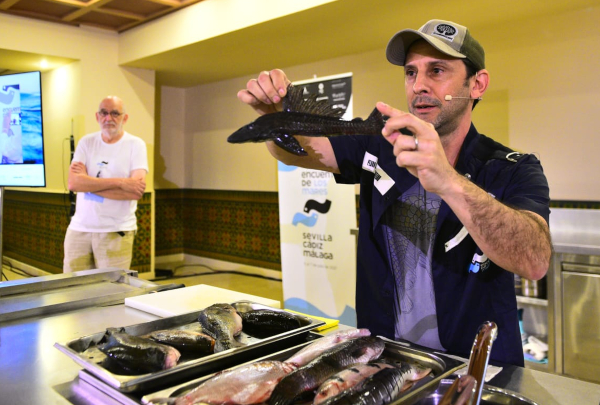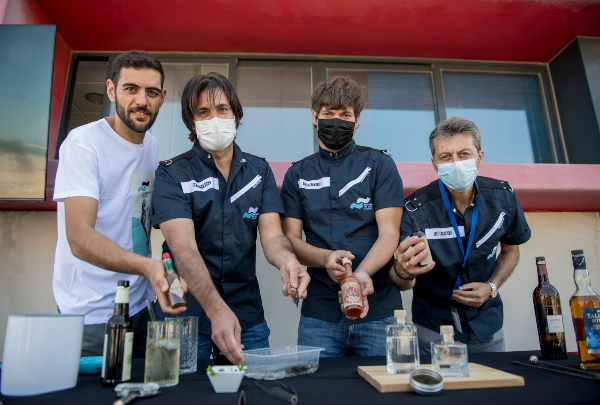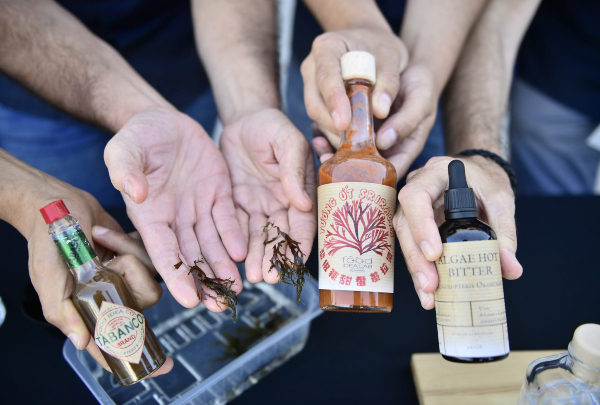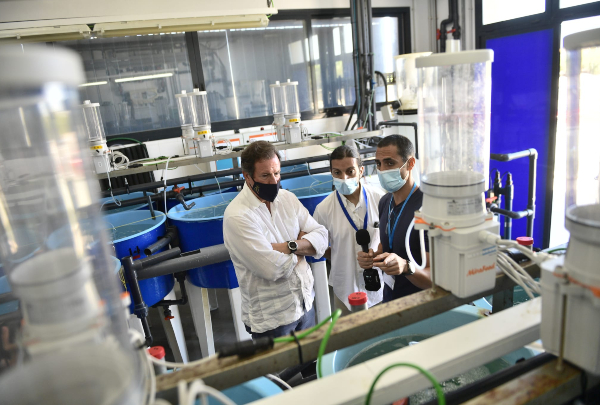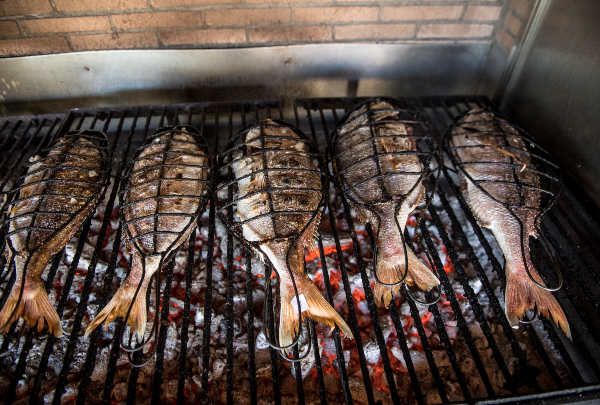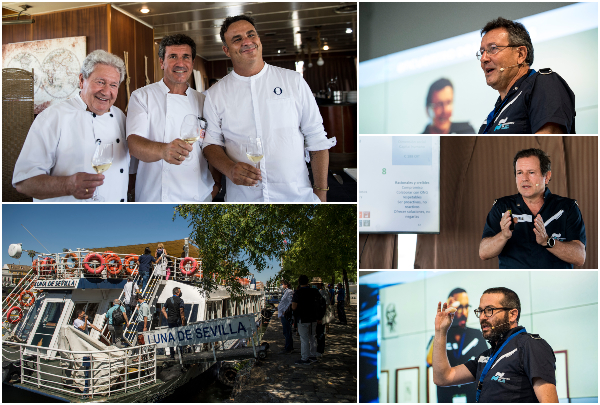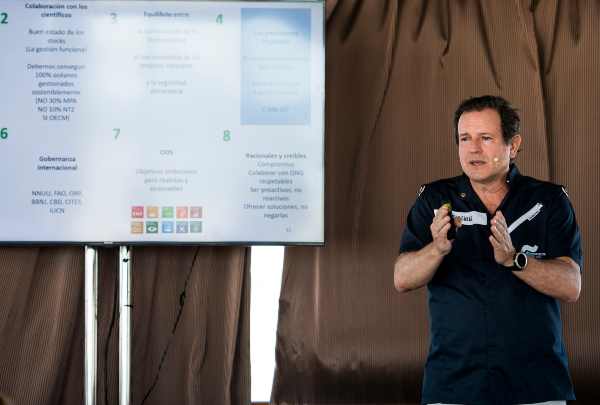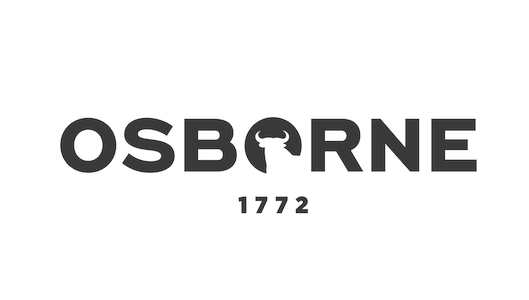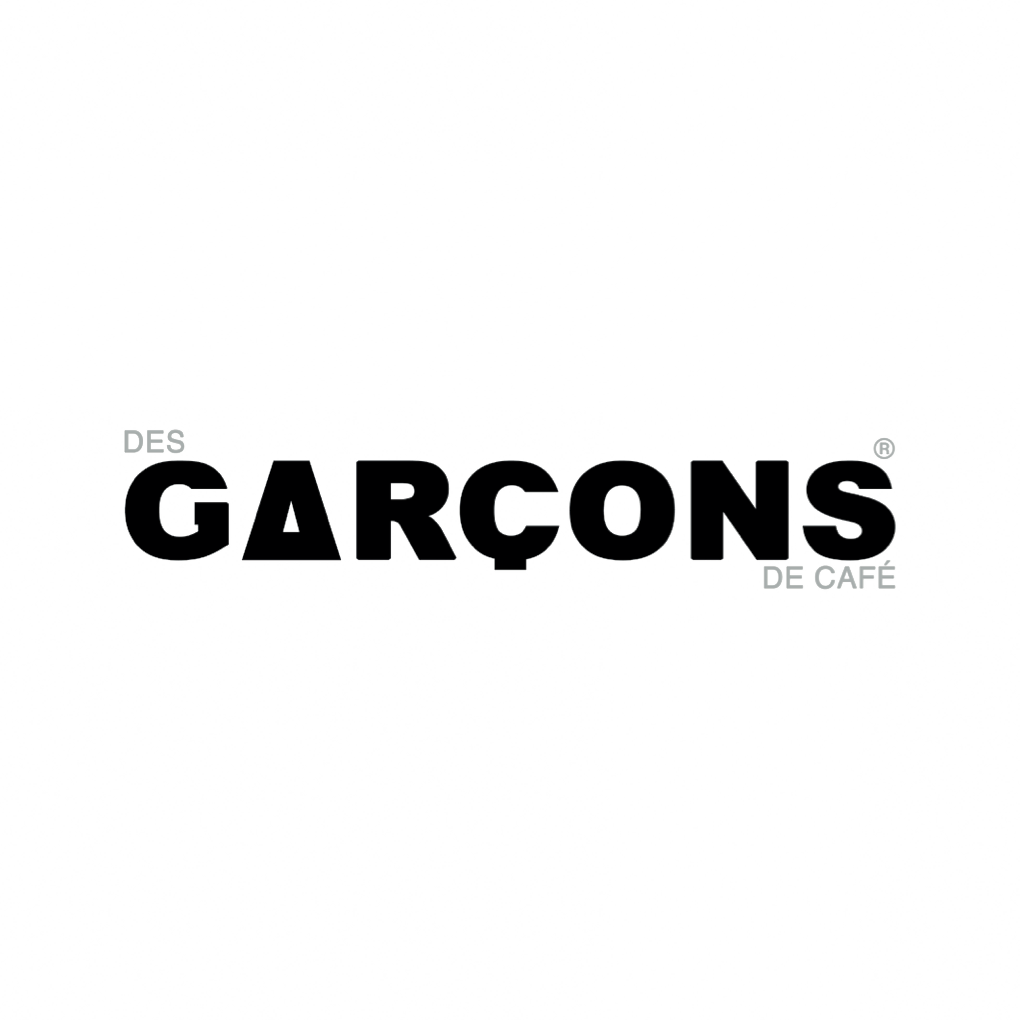News
Water, microalgae, collagen. Rice that can be made on the moon, by Ángel León
.jpg)
he chef of Aponiente*** (El Puerto de Santa María) is making progress in his bid to present a menu containing only sea proteins with a new dish: marine rice, based on a stock made from crab and microalgae. His project to cultivate cereals in the sea using marine eelgrass has gone professional following the arrival of scientists at the University of Cantabria.
The work involved in cooking Ángel León’s sea has no end. The Cádiz chef availed himself of the 3rd Meeting of the Seas to present “a dish I still haven’t dared to serve up at Aponiente”, rice with no proteins: just rice, water, microalgae, and collagen. “The idea was to make a paella with no sauté, no garlic and no paprika; a paella where the sea would boil and reduce; the kind of rice that could be made on the moon”, he said.
The new item stems from work on fish tails carried out by the restaurant’s research team, “from which we extracted a rather interesting collagen by boiling a kilo of scales in a pressure cooker. That gave us the idea”. Then “we made a stock of crab and microalgae, and added the collagen and the rice to produce a deep rice, where the collagen goes crunchy and tastes of squid”. León’s dream of creating a menu with no fish, only sea protein, continues its trajectory.
Before presenting his dish, the sea chef gave an update on his project with marine eelgrass, an autochthonous gluten-free species of Cádiz Bay with many properties, “a chance to create a crop that can produce 2 or 3 tonnes of grain per hectare in sea water”, explained Aponiente’s biologist Juan Martín alongside León during the talk. “Even being able to sow grain in salt water is a genuine revolution”, said the chef.
For the time being, the project continues, with three pilot projects during which the grain is subjected to different pressures and water loads to see how it develops. They hope “for the day we will know the ABC of the cultivation of eelgrass”, a day which is not too far away thanks to collaboration of the restaurant with engineers, among others, from the University of Cantabria. “We’ve managed to professionalise the project. The ultimate idea is to substitute land cereals with environmental and sustainable benefits – you harvest the sea, and the sea doesn’t give you anything for free”, said León.
.jpg)
